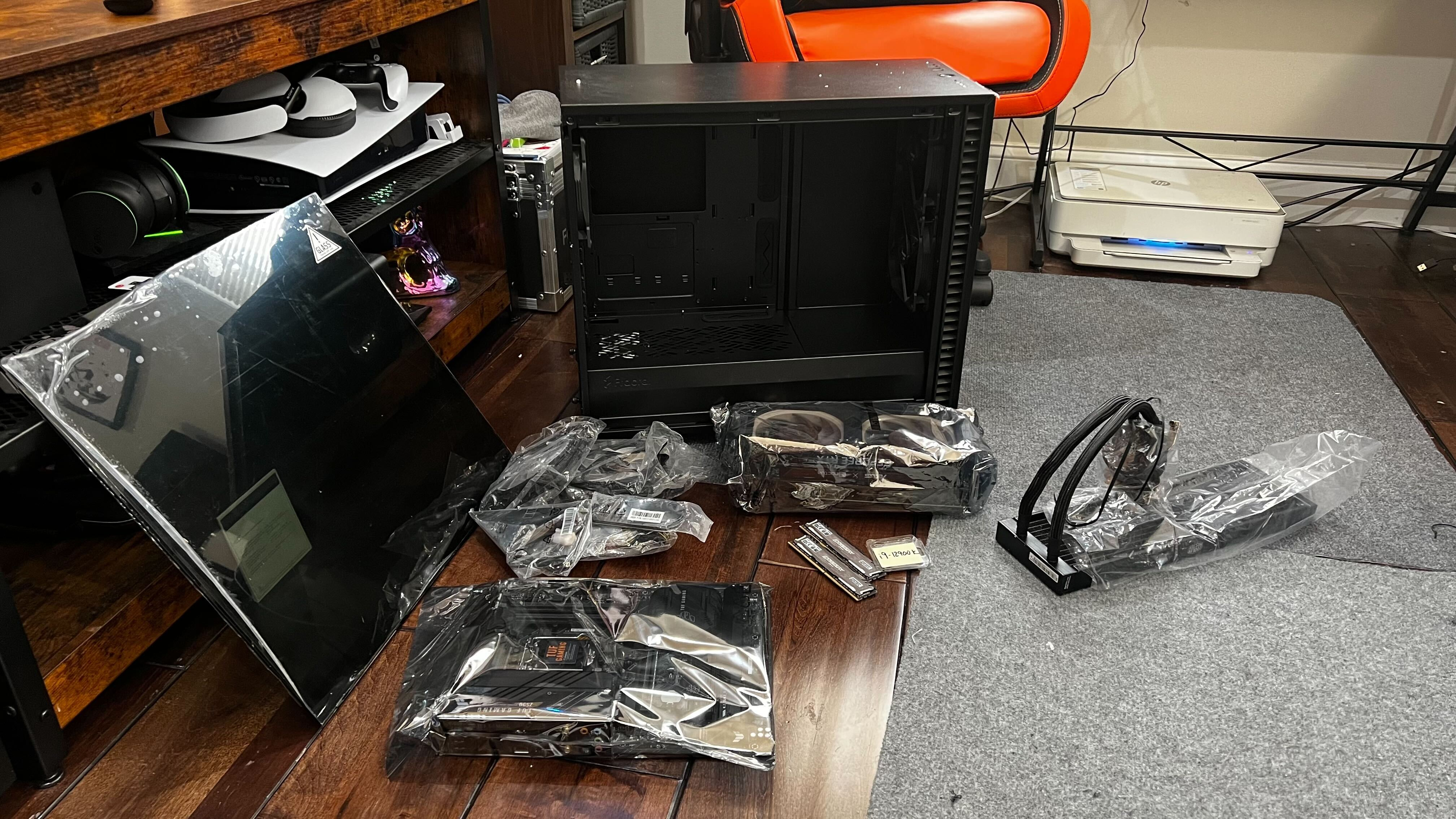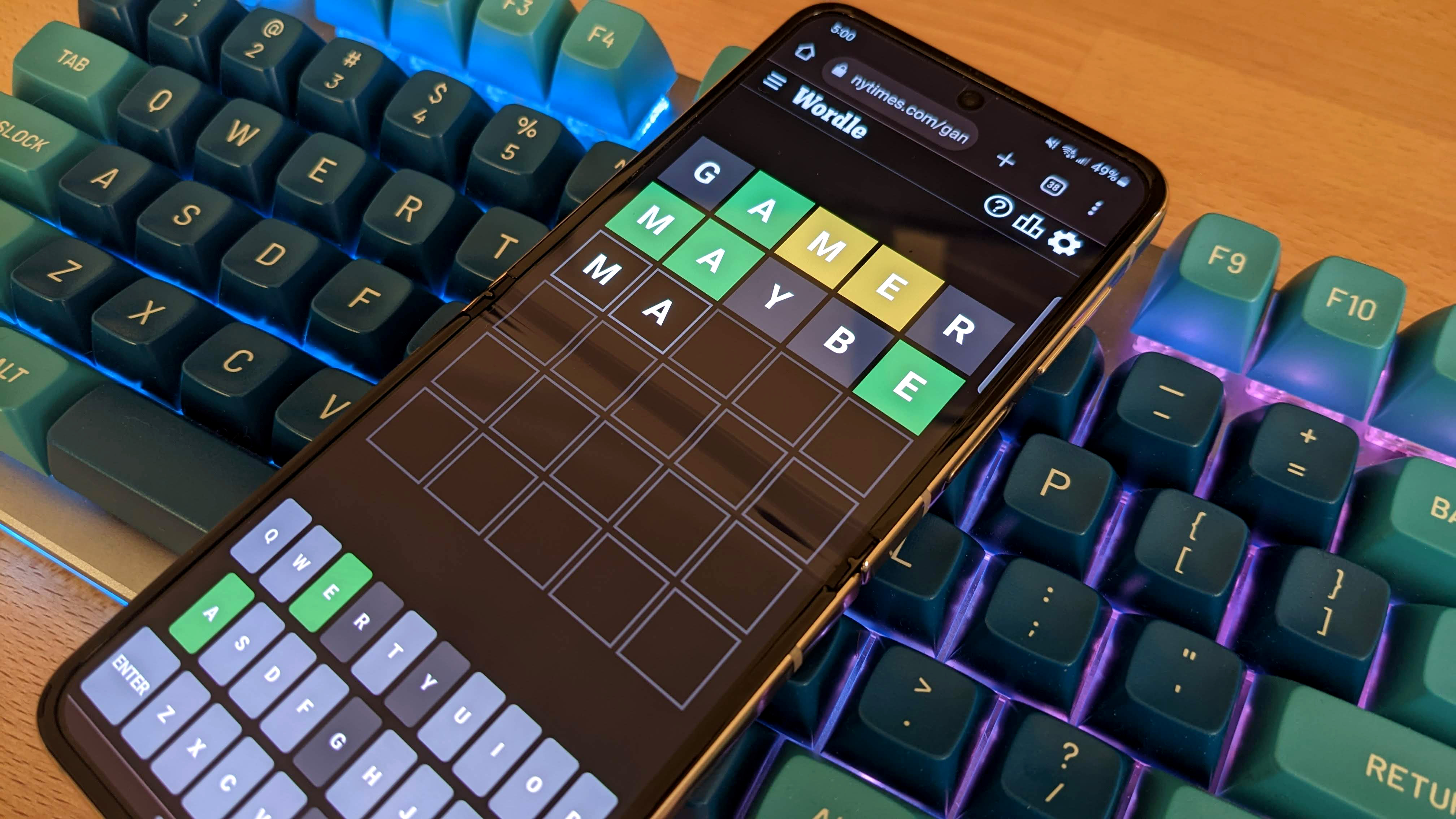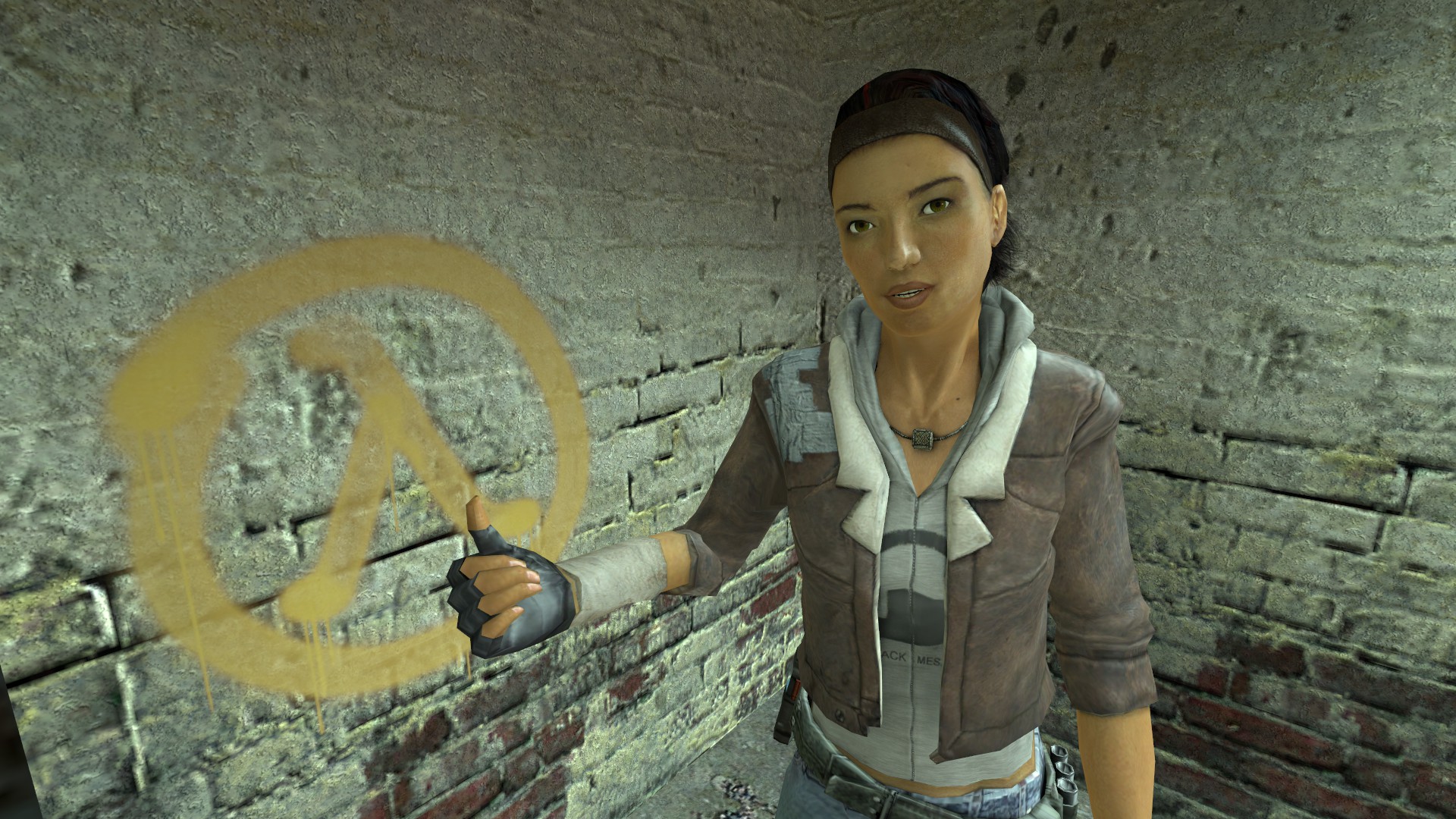
Wait, where does this thing go?
In the summer of 2011, I saw a certain open-world fantasy RPG being played on one of the custom gaming PCs at my local computer store that stopped me dead in my tracks as I shopped for a new mouse. In case you’re wondering, it was The Witcher 2: Assassins of Kings. I knew then and there that my dinky Compaq Presario I’ve been using since high school to play games like Starcraft, Team Fortress 2, and the Sims 3, was in no way capable of running CD Projekt Red’s fantasy epic. Geralt of Rivia deserved the best.
(Image credit: Future – Jorge Jimenez)
Case: Fractal Design Define 7
CPU: 12th Gen Intel Core i9-12900K
GPU: Asus Noctua OC Edition RTX 3070 8GB
RAM: Corsair Vengeance 32GB (2 x 16GB) DDR5-5600
Motherboard: ASUS Z690-Plus TUF Gaming WiFi D5
AIO Cooler: ID-COOLING FROSTFLOW X 240mm Radiator Snow CPU Water Cooler w/ 2x120mm PWM Fans
PSU: G.Skill MB850G 80 Plus Gold
Storage: 2 x XPG SPECTRIX S40G RGB M.2 2280 1TB PCI-Express 3.0
Price: Nunya
With the help of a friend (who, let’s face it, did most of the work), we put together my first PC specially designed to play the Witcher 2 on max settings and pretty much anything else I could throw at it for the next couple of years.
Since then, I’ve gone through several gaming PCs, mostly just hand-me-down systems from friends doing fresh new builds or loaners from work so I can experience the big games like Cyberpunk 2077 or Elden Ring. I wanted the satisfaction of putting together something that’ll provide me with hours of entertainment.
So finally, for 2023, I promised to give PC building another go with components I snagged around Black Friday.
Time to put together the gaming PC of my dreams.
I knew the steps and where everything was supposed to go. Often, you’ll hear PC builders say it’s “just like adult Lego” or that building a PC these days is “idiot proof.” I’ll admit, it has gotten easier. But as you’ll find out, you can still make many frustrating mistakes if you don’t research. And even when you do everything right, there’s always a looming possibility that something unforeseen could go wrong.
It was important for me to go with a case that looked good and was easy to work on. That’s why I splurged a little on a Fractal Design Define 7 in black. It’s a spacious case with room for any cooling solution I want. So if I wake up tomorrow and decide to be a custom water cooling guy, I can stick with this case.
Peek under the hood after its first successful boot. (Image credit: Future – Jorge Jimenez)
Another reason I went with the fractal is that it has a bunch of cut-outs for cable management, which I have always struggled with. I did not want my precious PC to be a rat’s nest of cables that looked like the back of my desk. The fact that it uses latches instead of screws for opening the side panels is a huge plus as well.
The part of the process that stressed me out to no end was installing the CPU to the motherboard. There are so many things you could mess up if you don’t know what you’re doing or, in my case, sort of know but never actually had to do it before. The last thing I wanted to do was mess up the Intel Core i9-12900K I paid decent money for; I even used gloves when it came down to mounting the CPU to the TUF Gaming Z690 motherboard.
Once I mounted the CPU into its socket, I was concerned that I could have inserted it incorrectly, but the motherboard these days have little symbols to match the corners of the CPU, so you know it’s not upside down.
Next came installing the two 1TB XPG Spectrix NVMe SSDs from my old PC to the M.2 slots on the motherboard, which was painless. I wasn’t a massive fan of the RGB on them, but since you won’t be able to see them, it didn’t bother me too much.
A faulty power supply aka the stuff of nightmares. (Image credit: Future – Jorge Jimenez)
After installing the motherboard and power supply, I finally understood why people enjoy building PCs. I was in a groove. With every component successfully slotted into the motherboard, I gained more confidence.
Then came connecting the cables.
All the confidence I had built up in the process? Gone. The 1200W power supply I ordered came with power cables of different lengths. Some that went into the motherboard were just a hair too short, and the ones meant for the GPU were too long.
This meant some cables were too taut for my liking or had too much slack, which could have looked better. This process which should have taken me at least 25 minutes, took up more time than I’d like to admit. The excess cables made it near impossible for me to plug the front panel connects, and once I did, my biggest concern was that some pins would bend or, worse, break.
At this point, I had installed the GPU, a dope-looking RTX 3070 Ti Asus Noctua that looks like an owl from a certain angle, and a white AIO cooler to a couple of fans for some contrast. Applying the thermal paste to the CPU before installing the AIO cooler was a messier process since I was a little overzealous with the amount of paste. Oh well. I’m sure that’s fine.
Once all the boxes were checked, it was time for the moment of truth. Give life to my monster and hit that power button.
Nothing.
Nada.
It’s not perfect but it’s mine. (Image credit: Future – Jorge Jimenez)
Whenever I hit the power button, the PC wouldn’t boot. Instead, I heard a loud click from the PSU, the universal sign for ‘there’s a problem.’ I retrace my steps, painstakingly replugging all my cables, and still nothing.
I consulted the experts, aka the brain test of hardware-savvy friends I have on Discord. Night after night, I spent troubleshooting the potential reasons my PC didn’t boot. Was my RAM installed backward? Nope. Did the CPU crap out? No.
So I had to take everything out and clip it back in. I had to be sure everything was in its proper place. Before I knew it, a week had passed, and I started to reconsider the whole damn thing. I was looking to see if I could still get some components refunded. I felt like I wasted my money and my time.
What if I fried my motherboard and did not know it? Or maybe I was too rough with the GPU and broke it during the installation? So many questions ran through my head.
The last thing is that there may be something up with my PSU. To be safe, I swapped out the power supply for an 850 W Gold PSU with integrated cables. I hoped that the power supply was defective and not something more dire.
Finally, late one Saturday night, something extraordinary happened. My PC powered on, and a Windows logo appeared on the screen. Relief washed over me because I could not handle another night of awkwardly fiddling with power cables.
My first gaming PC build in like 15 years. I made all the rookie mistakes but eventually got here! pic.twitter.com/LZvtkNtYbcFebruary 3, 2023
A few driver updates later; I’d done it. I built a working gaming PC that has no issues almost a month later. Even now, as I write about my experience, I can’t help but feel a little sense of pride and accomplishment.
This is what it must feel like when an artist finishes a painting or when a woodworker puts the final touches on a birdhouse.
Yeah, my cable management, much like myself, is messy but functional. The LED on the front panel won’t light up when the system is on, and I’m pretty sure I hear a loose screw rattling whenever I move the PC. But you know what? I built that messy, rattly thing, and I’ve never been more proud of myself.
What was the first thing I played on a reasonably beefy PC? Tactics Ogre Remastered, a remaster of a 20-year-old turn-based strategy game, and Like a Dragon Ishin, a remake of a 10-year-old action-adventure game. Elden Ring and Call of Duty will probably look great too, but I need my comfort games after this adventure.



